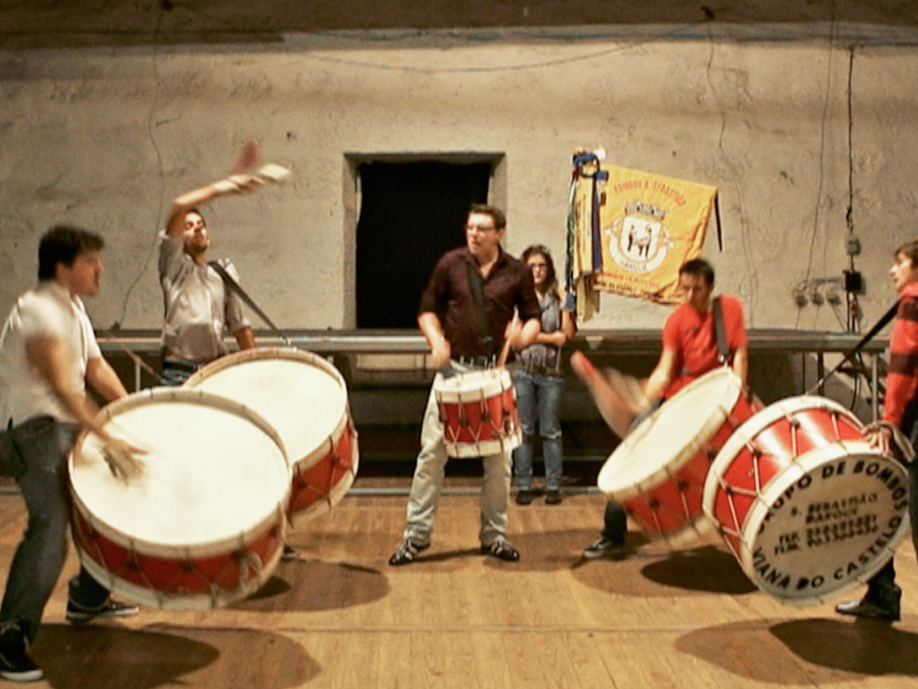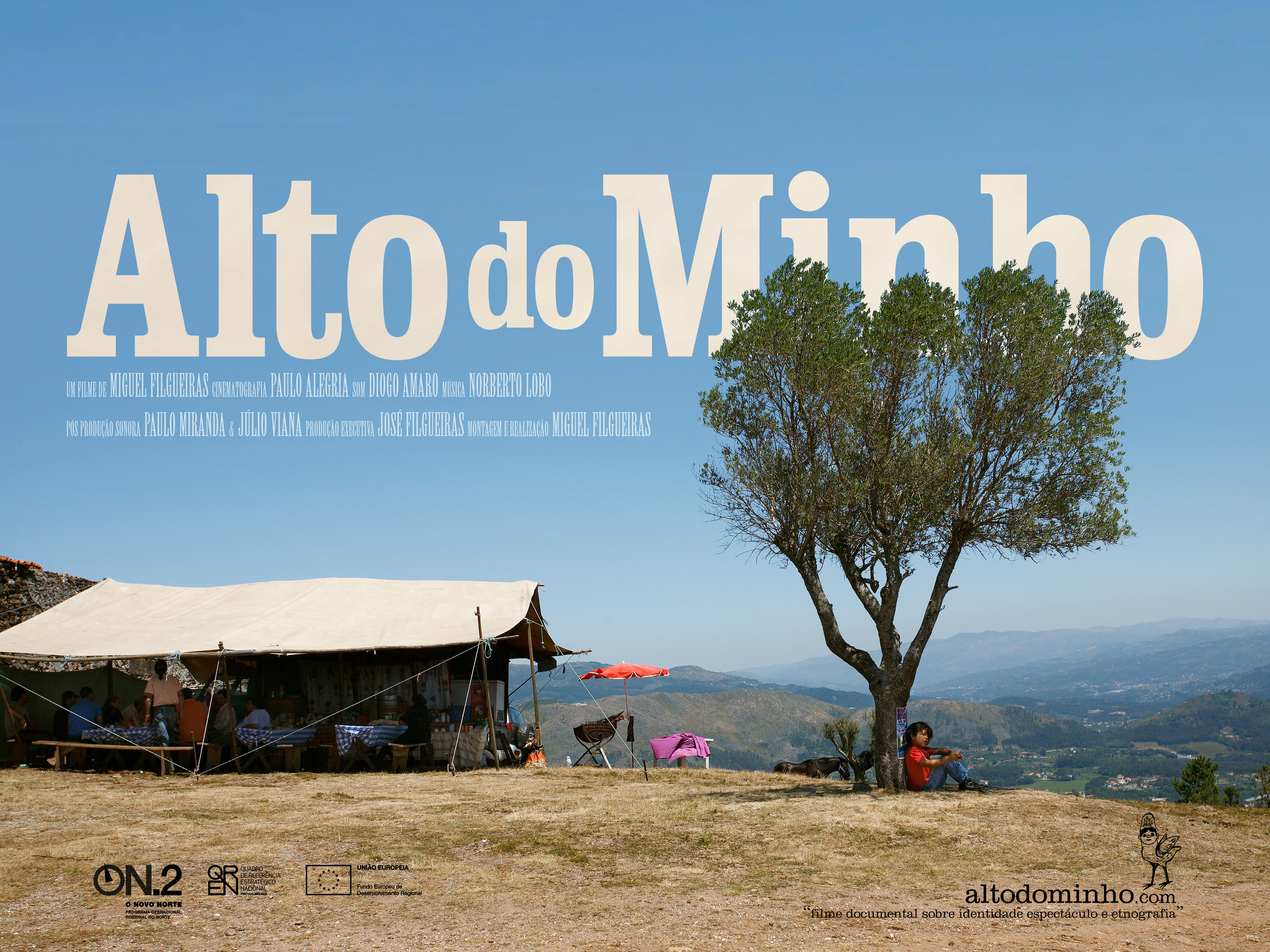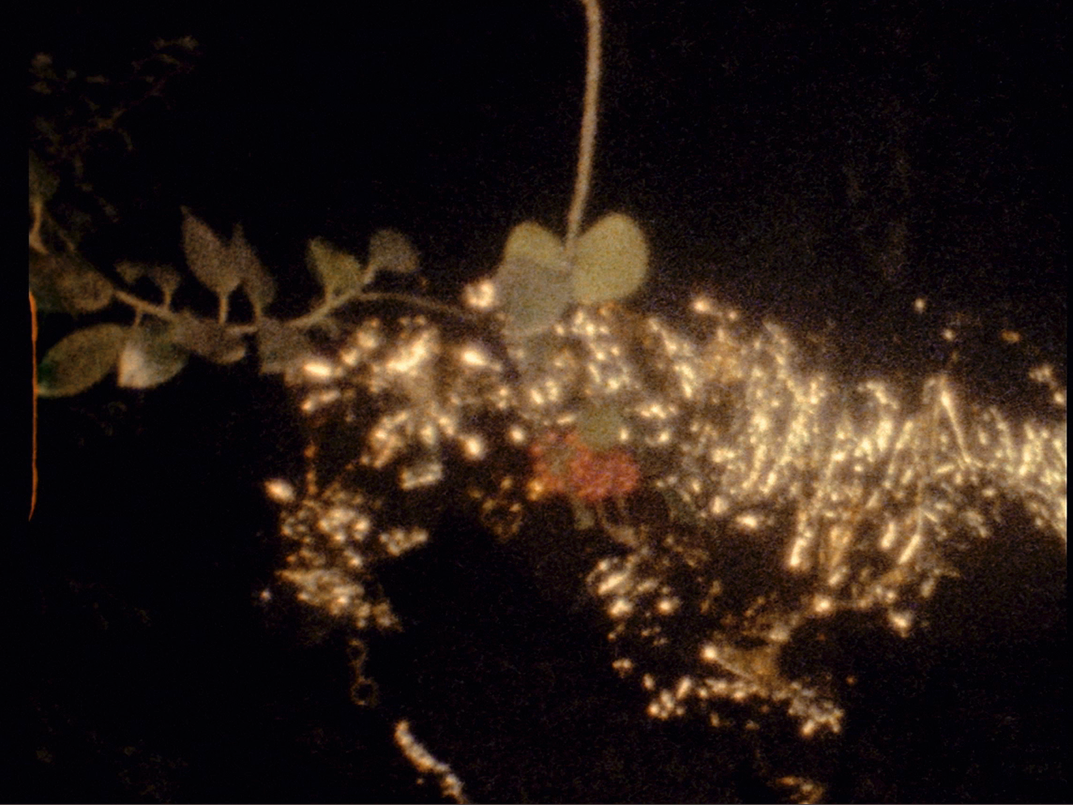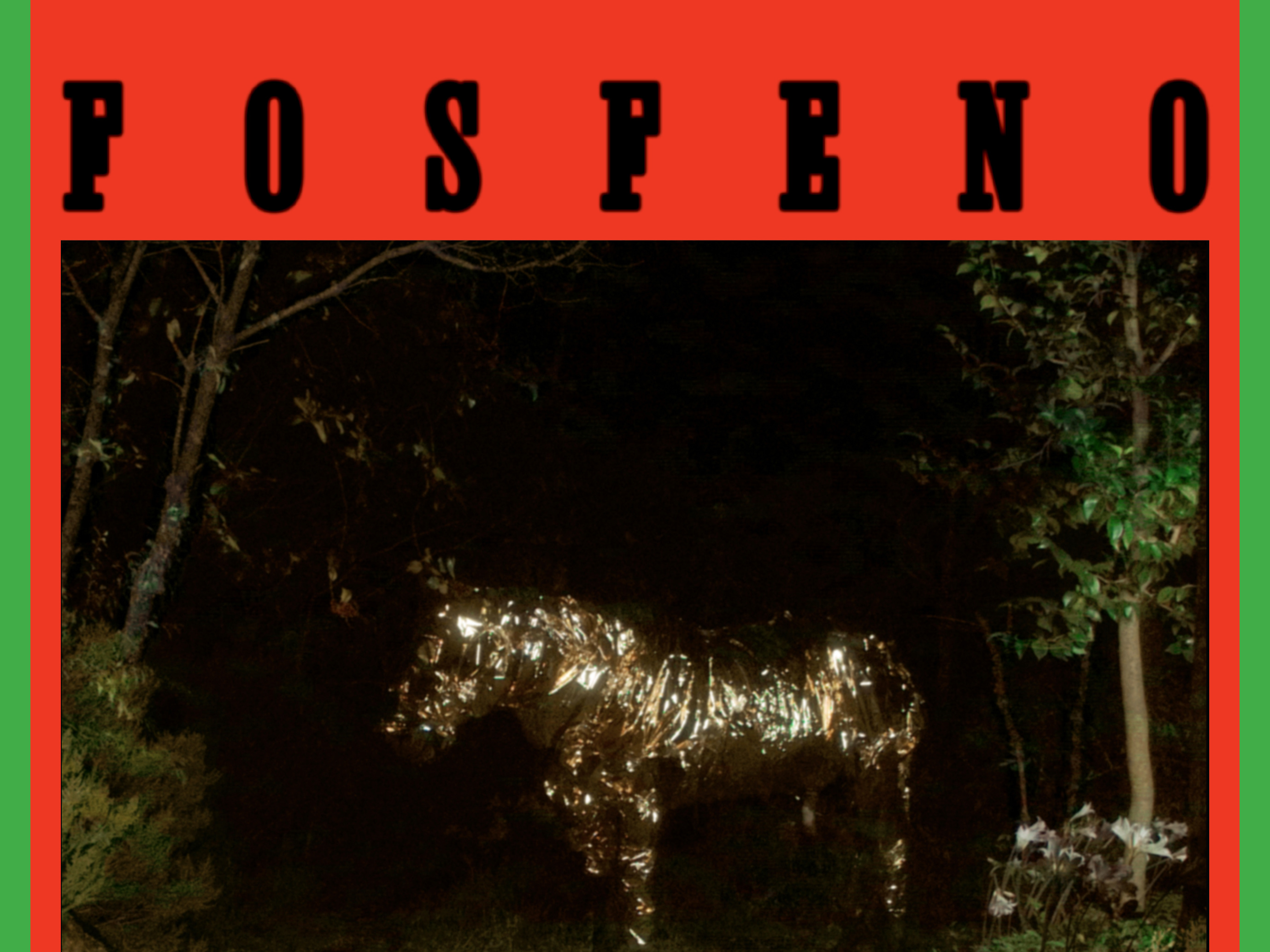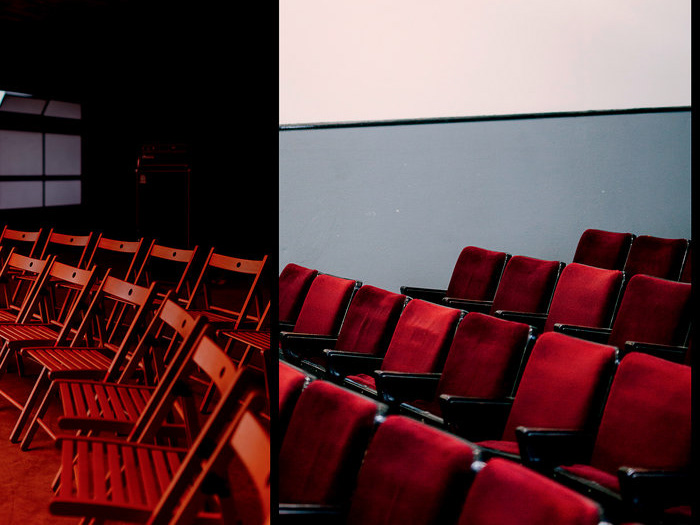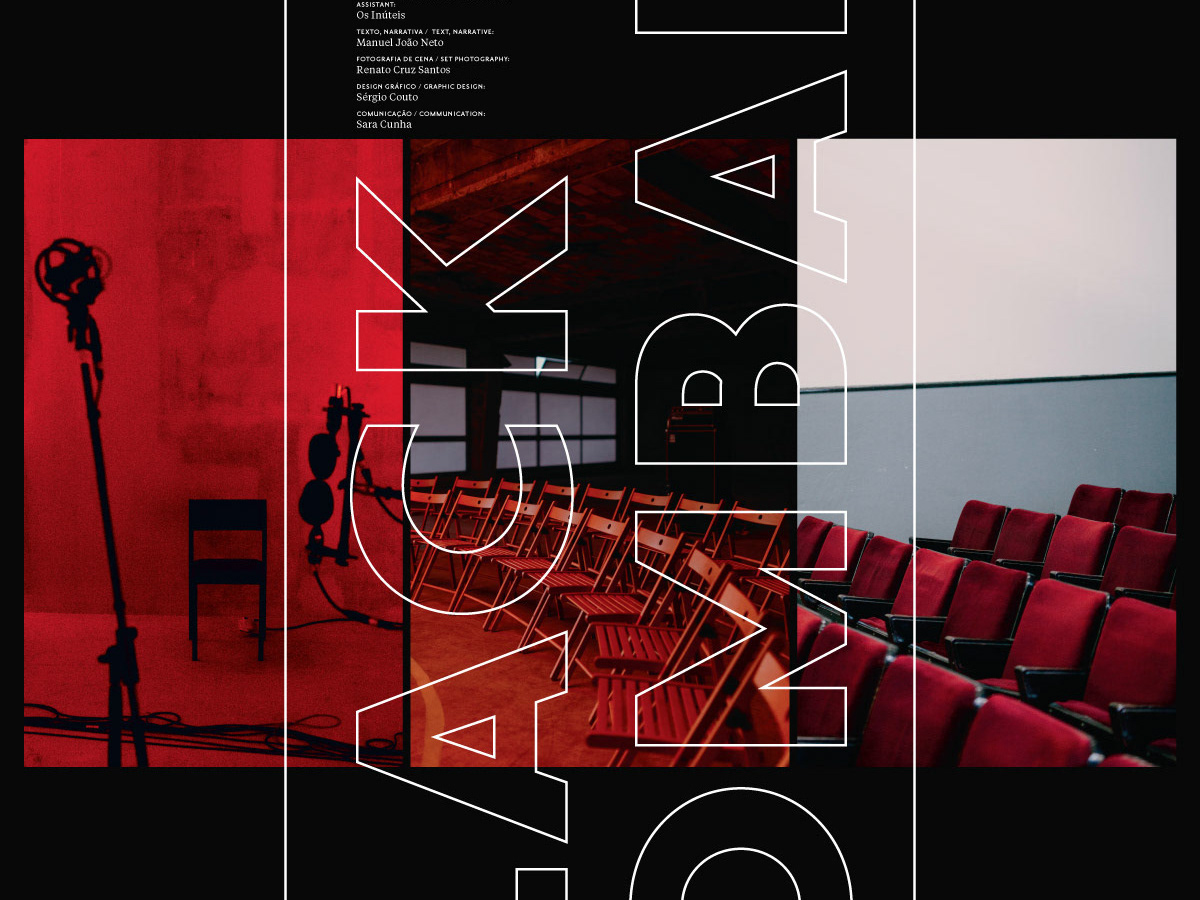Rendufe
2016, 28', M12, PT
formato: 2k : 16/9 suporte: DCP
A musical documentary in which Rui Carvalho (Filho da Mãe) surrenders to the guidance of choirs, birds, and silences in the recording of his album Mergulho. The process unfolds within the Monastery of Santo André de Rendufe — a ruin that ceases to be a remnant of the past and becomes instead a living stage for creation.
Trailer
Here, music is not spoken of, it is not theorized. It emerges from breath, from listening, from the resonance of stones and the fleeting presence of birdsong. The ruin is not only a backdrop but an instrument, shaping the sound and echoing its fragility. Silence, too, becomes a voice — a reminder that music is as much absence as presence, as much suspension as vibration. This is not a film about music in the descriptive sense; it is a film that allows music to inhabit time and space, that lets us witness the act of listening as a form of creation itself.
Between the unmistakable fingerpicking of Rui Carvalho (Filho da Mãe) and the lingering resonance of liturgical music, Miguel Filgueiras sets out to explore the recesses of the semi-ruined Monastery of Santo André de Rendufe. The concomitant chirping of birds, the children playing in the cloisters, and the sessions of choral singing immediately transport us into that imaginary of seclusion par excellence — a stark counterpoint to the deafening revelry of the café-concert that opens the film. Rui escapes, and we follow. With guitar in hand, he becomes the guide of this monastery, inhabiting its many chambers with a single purpose: to compose and to record.
Here, music is not spoken of — it is listened to. And through it, we are invited to wander this space, at once imposing and ghostly, once consumed by flames. “Why did it burn?” someone asks.
(Alexandra João Martins)
Músico Rui Carvalho é Filho da Mãe Direção Miguel Filgueiras Audio Duarte Ferreira João Bonito Assistente João Bonito Ricardo Gomes Grafismo Sérgio Couto Participação Vitor Gonçalves João Brandão Ricardo Martins Iuri Landolt Cláudia Guerreiro Cláudio Tavares Produção Encontrarte Amares Lovers and Lollypops Estudios Sá da Bandeira Apoio Câmara Municipal de Amares Direcção Regional da Cultura Norte wecamefromspace Agradecimentos Martinho Antunes Ricardo Gomes Fernando Almeida Sérgio Couto Vitor Gonçalves CCOB

